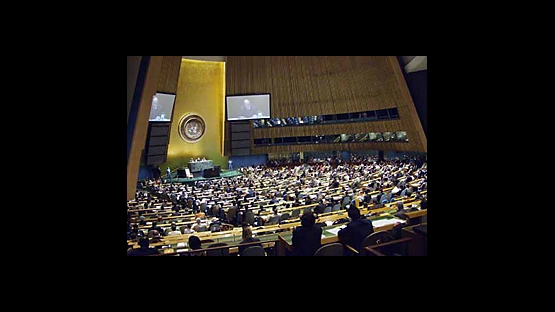The international treaty against nuclear terrorism adopted by the United Nations General Assembly this week bolsters the global legal framework to counter terrorist threats, including cooperation with the IAEA. The International Convention for the Suppression of Acts of Nuclear Terrorism opens for signature in September this year.
The Convention is a key part of global efforts to prevent terrorists from gaining access to weapons of mass destruction, the use of which could lead to catastrophic consequences. Based on an instrument originally proposed by the Russian Federation in 1998, the Convention provides for a definition of acts of nuclear terrorism and covers a broad range of possible targets, including those against nuclear power plants and nuclear reactors. Under its provisions, the alleged offenders must be either extradited or prosecuted. It also encourages States to cooperate in preventing terrorist attacks by sharing information and assisting each other in connection with criminal investigations and extradition proceedings. The treaty requires that any seized nuclear or radiological material is held in accordance with IAEA safeguards, and handled in regard to the IAEA´s health, safety and physical protection standards.
The Convention´s adoption, after many years of negotiations, is a "vital step forward in multilateral efforts to prevent nuclear terrorism," said UN Secretary-General Kofi Annan.
The IAEA recently held a nuclear security conference in London that renewed global efforts through IAEA and other programmes to combat nuclear terrorism and raise levels of nuclear security. See Story Resources for more information.


